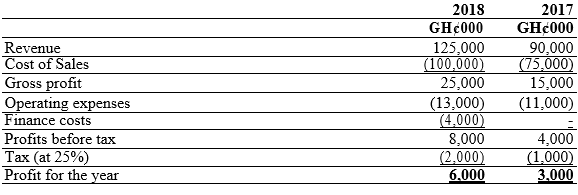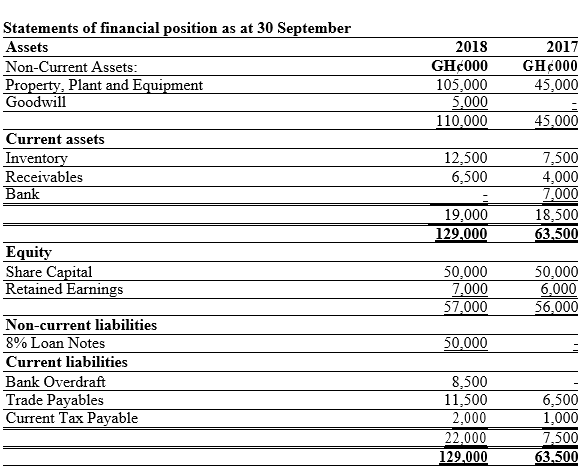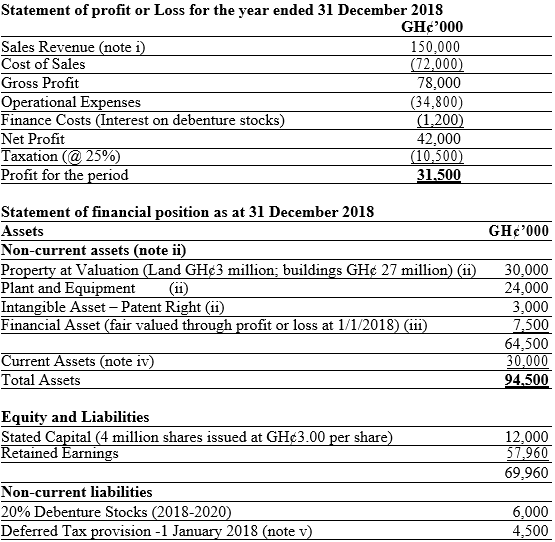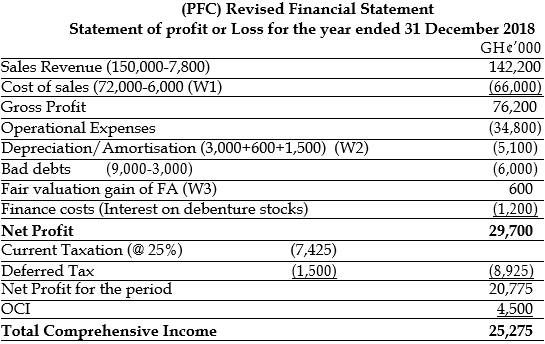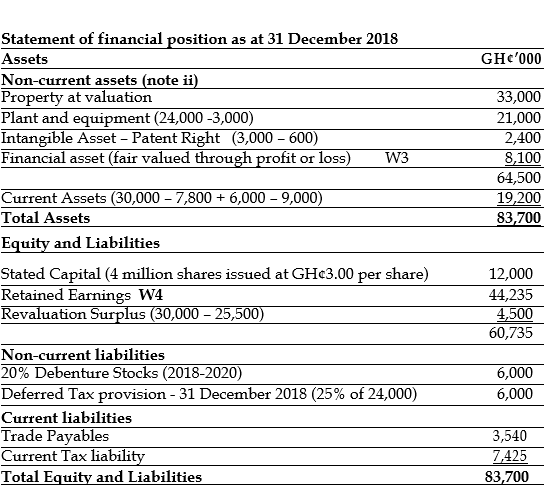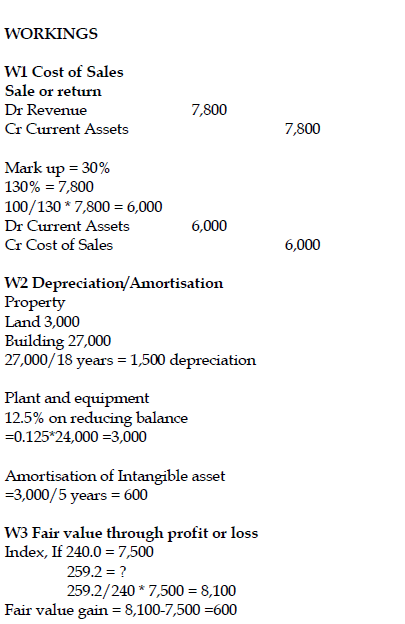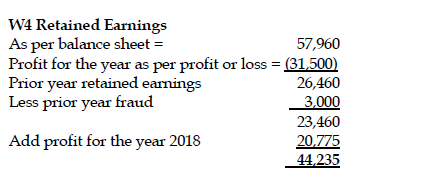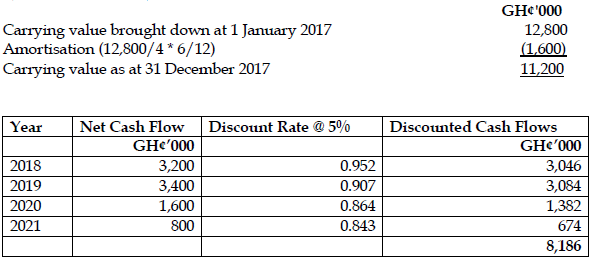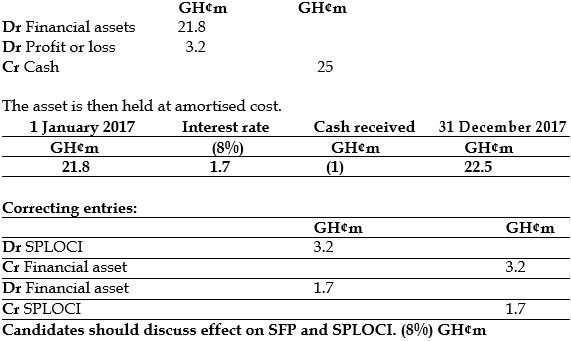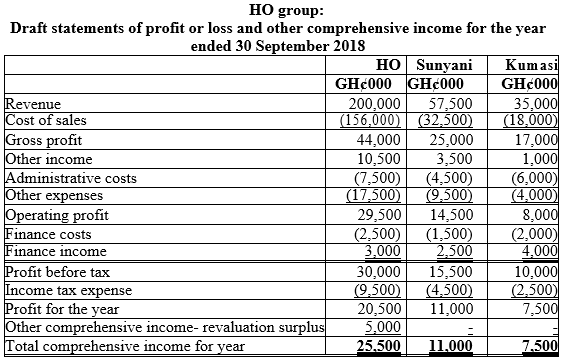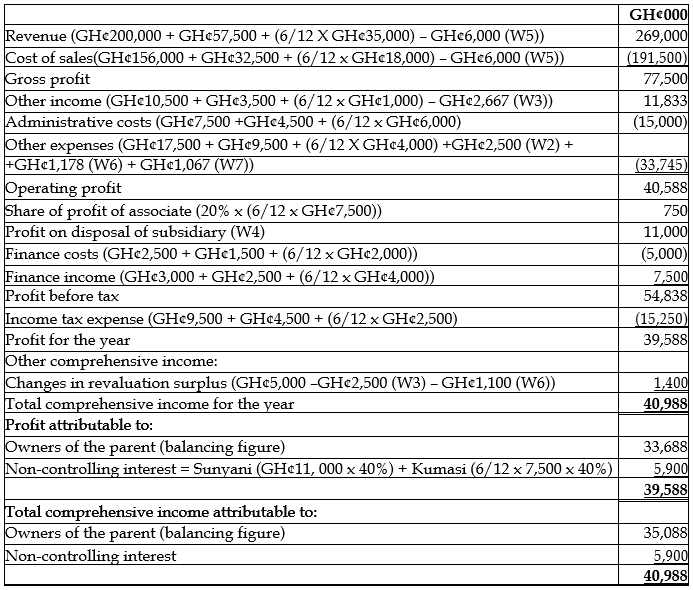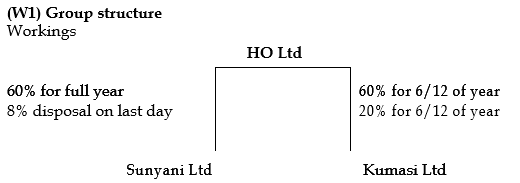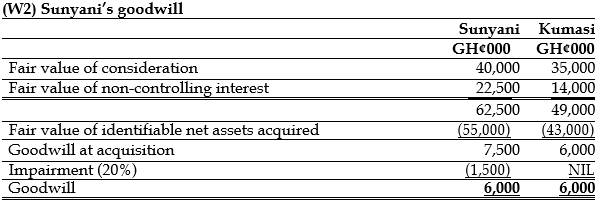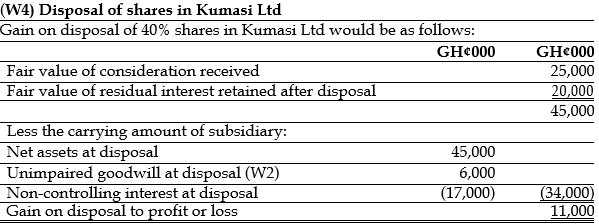May 2019 Q5 b.
Bolgatanga Ltd (Bolgatanga), currently operating in the biotechnology research and healthcare sector, is a Ghanaian listed company which prepares financial statements in accordance with International Financial Reporting Standards (IFRS) up to 31 December each year. On 1 January 2015, Bolgatanga acquired 80% interest in Wa Ltd (Wa). You are a newly qualified accountant at Bolgatanga and report directly to Mr. Dominic Atubiga, the Financial Controller (FC). Early 2017, Bolgatanga acquired Sissala Ltd (Sissala), a private company and has recently had an application for additional funds rejected from its current bankers on the basis that there are insufficient assets to offer security.
You have been reviewing the minutes of Bolgatanga’s last board meeting, dated 28 December 2017.The minutes indicate that the sales director resigned on 1 December 2017. In her resignation letter to the board, the sales director states that she can no longer work with Dominic Atubiga who is dominating the board and allowing a close friendship with, and advice from, Salifu Adams (Managing Director of Sissala) to compromise his judgement.
The Human Resources department is currently in the process of recruiting a new sales director. Dominic Atubiga tells the board that, in the interim, the marketing department will just have to cope until a replacement sales director is appointed. Speaking to other staff in Bolgatanga, you have become aware that the wife of the Managing Director of Bolgatanga is a partner in Brother and Co., a firm of solicitors which the company uses to provide legal advice in relation to the market development activities of Wa. However, Brother and Co. has confirmed that the FC’s wife works in a different division and that she has no involvement in the services provided. It is your understanding that legal fees of GH¢500,000 (included in administration expenses) were paid by Bolgatanga to Brother and Co. during the year ended 31 December 2017.
Required:
Discuss the ethical issues arising from the information provided, and the appropriate steps to address them. (10 marks)
View Solution
- The resignation (as per Board Minutes 1 December 2017) of the sales director does give some cause for concern. In particular, the extent to which Dominic Atubiga is able to dominate the board, poses questions around the governance of Bolgatanga. The company is operating without the key skills of a sales director. The board is therefore not acting effectively and there would appear to be a lack of transparency around Atubiga’s behaviour.
- The fact that the managing director’s wife is a partner in Brother and Co raises an ethical issue. This could result in a serious conflict of interest. In this case, the managing director and his wife can be considered to be related parties from the viewpoint of Bolgatanga and Wa Ltd. Therefore, Brother and Co. could be viewed a related party of both companies. The wifesʼs lack of involvement in the services does not exempt her from being considered a potential related party. The nature of the transaction is such that it is appropriate to disclose details of in the financial statements of both Bolgatanga and Wa. Moreover, the services provided and the monetary amounts involved should be disclosed.
- Issues around the financial appraisal of Sissala – given the company’s existing bankers refuse to provide further funding. This is important given Dominic Atubiga’s close relationship with the managing director of Sissala – a potential future acquisition target for Bolgatanga. (3 points @ 2 marks each)
Ways of addressing the ethical issues
1. The Code of Ethics for professional accountants must strictly be complied with, as a way to resolving any conflicts that appears to be developing. It is essential that Chartered Accountants do not succumb to pressure from management.
2. The nature and composition of the Board of Directors should be appraised in order to identify potential threats to good corporate governance practices.
3. Transactions with related parties should be adequately and sufficiently disclosed.
4. Appropriate orientation on adherence to professional Code of Ethics should be provided to key management personnel. (2 points @ 2 marks each)

